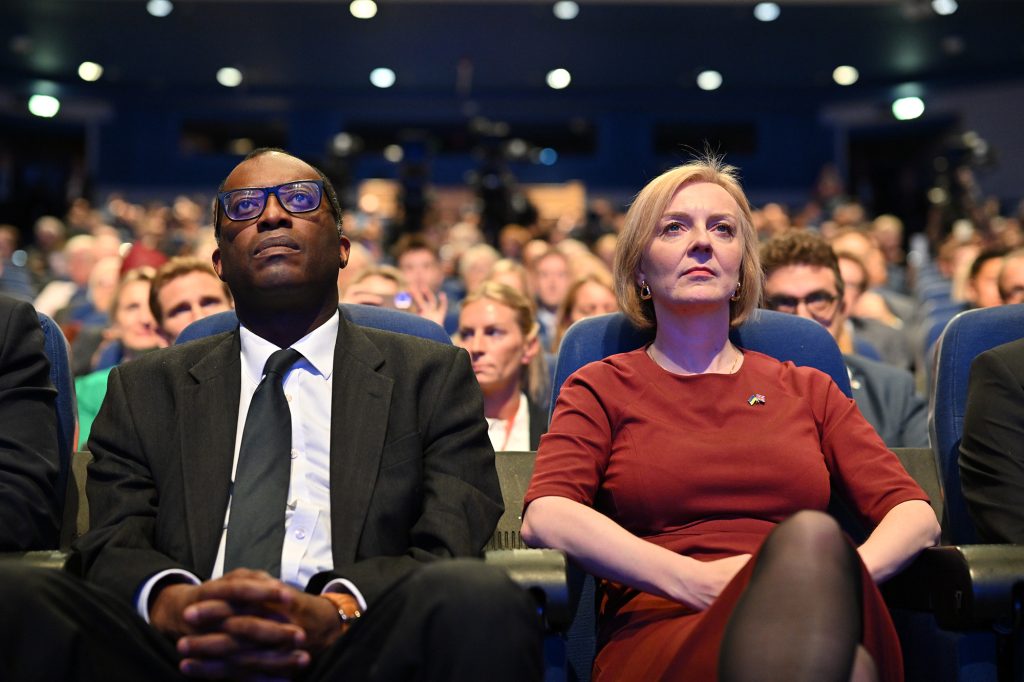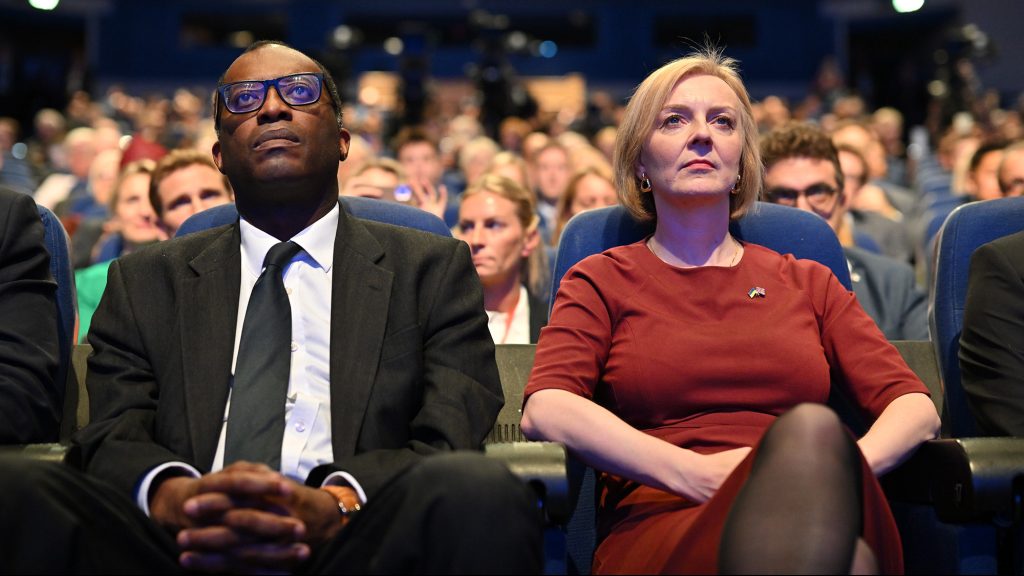
(CNN) — UK Prime Minister Liz Truss has fired finance minister Kwasi Kwarteng and ditched a big part of her discredited economic strategy in a desperate bid to rescue her month-old premiership.
At a Downing Street news conference, Truss said she was scrapping plans to reverse a rise in business taxes, a move that will save £18 billion ($20 billion), after a revolt by investors and members of her own Conservative Party worried about the impact of soaring government borrowing at a time of decades-high inflation.
It was the second climbdown on a key policy this month: On Oct. 3 the government ditched its plan to slash the top rate of income tax, just over a week after it was announced.
“It was right, in the face of the issues we had, that I acted decisively to ensure that we had economic stability,” Truss said Friday.
In a letter posted on Twitter, Kwarteng said he had agreed to stand aside at the request of Truss, adding he believed her vision of “optimism, growth and change” was the right one and pledging support.
Truss appointed former foreign minister Jeremy Hunt as Kwarteng’s replacement. He’ll be Britain’s fourth finance minister in just over three months.
Kwarteng presented a “mini budget” just three weeks ago, promising tax cuts worth £45 billion ($50 billion) and increased borrowing with the hope of boosting UK economic growth. But the pound and government bonds crashed on fears that the plans would further juice inflation at a time when prices are already rising at their fastest rate in about 40 years. Mortgage rates soared.
That prompted the Bank of England to warn of a serious risk to UK financial stability and announce three separate interventions to calm a bond market meltdown that put some UK pension funds on the brink of default.
“It is clear that parts of our mini budget went further and faster than markets were expecting, so the way we are delivering our mission right now has to change,” Truss told reporters. “We need to act now to reassure the markets of our fiscal discipline.”
Kier Starmer, leader of the opposition Labour Party, said it was time for a change of government.
“Liz Truss’ reckless approach has crashed the economy, causing mortgages to skyrocket, and has undermined Britain’s standing on the world stage,” he said.
The unfunded tax cuts have been roundly criticized by investors, the International Monetary Fund, credit ratings agencies and members of Truss’ own party, some of whom are now reportedly talking about removing her just five weeks into her premiership.
Kwarteng had flown back from the IMF meeting in Washington, D.C., overnight for discussions with Truss. His dismissal Friday means he held the job of UK Chancellor of the Exchequer for just 38 days, the second-shortest tenure on record.
Markets had welcomed signs of a rethink by the government. Bond prices rose earlier Friday, sending the yield on 30-year UK government debt back to 4.3%, down from a peak of more than 5% in recent days. The pound was also steadier, trading around $1.12, compared with a record low near $1.03 on Sept. 26.
But confirmation of the second screeching government U-turn in two weeks didn’t inject any further momentum into UK assets. Bond prices and the pound both dipped again in the immediate aftermath of Truss’s announcement.
An emergency £65 billion ($73.3 billion) bond-buying program launched by the Bank of England on Sept. 28 is due to expire Friday, leaving market participants worried that bonds could slump again — driving mortgage rates and other borrowing costs even higher — if the government doesn’t rapidly explain how it plans to pay for the remaining £25 billion in tax cuts.
Former deputy governor of the Bank of England, Charlie Bean, told CNN that Kwarteng’s removal was “probably a necessary step” but Truss would now have to unveil a new plan to tackle government debt over the next three to five years. Otherwise, the British pound and UK government bonds could experience another sell-off.
“What the markets want to see is a coherent picture, how it all fits together,” Bean said. “In the absence of that, you’re going to see sterling and gilts coming under pressure again.”
Kwarteng had already brought forward his full budget statement to Oct. 31, more than three weeks earlier than planned. But investors may not be prepared to wait that long for reassurance about the state of Britain’s public finances.






More Stories
Haitian gang leader claims they’re liberating the country
Roadworks restart on sections of Highway 1
US says they are the best choice for Africa